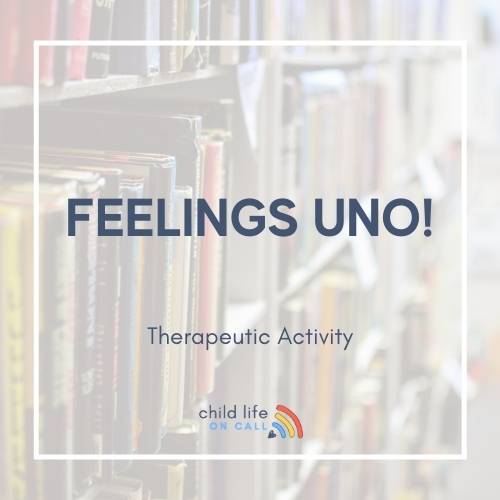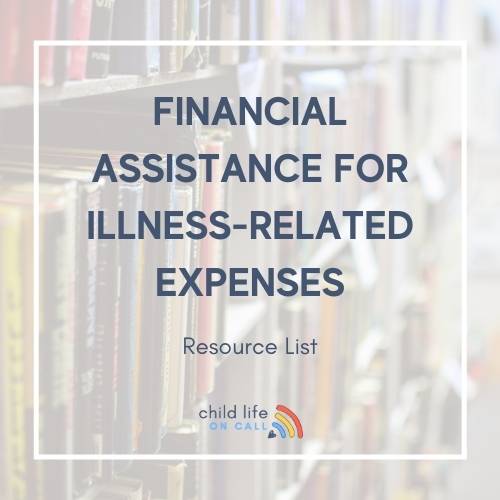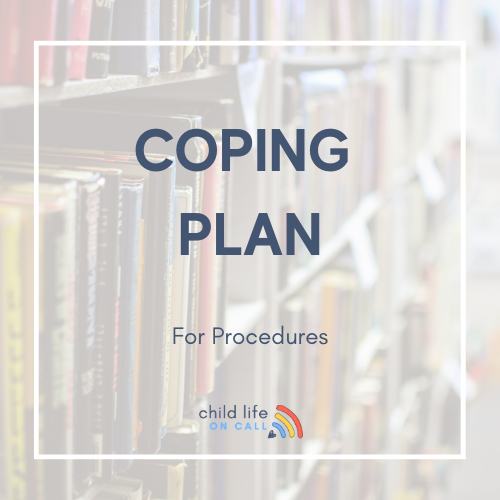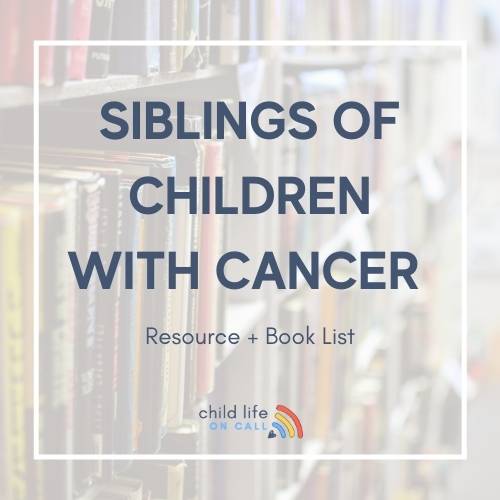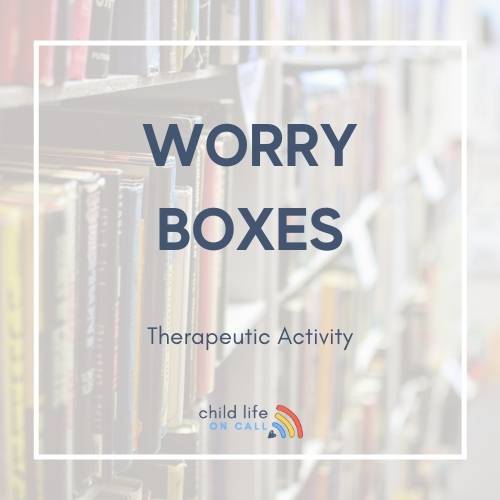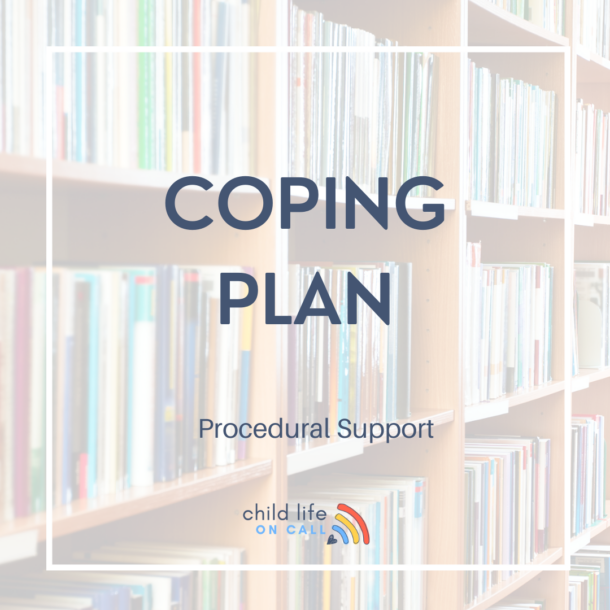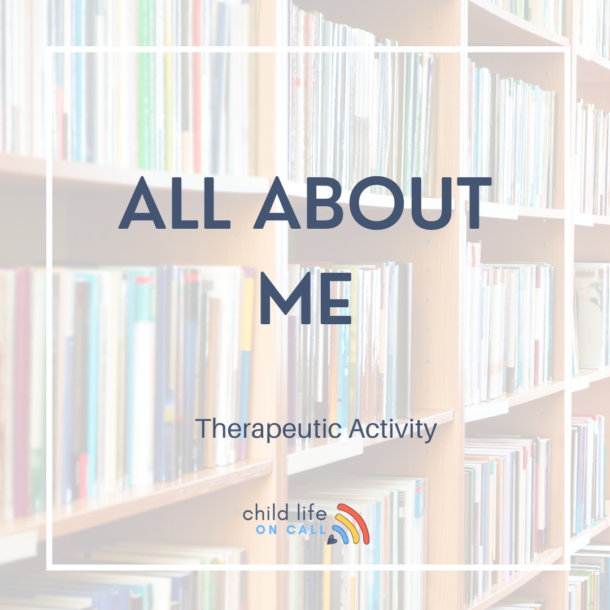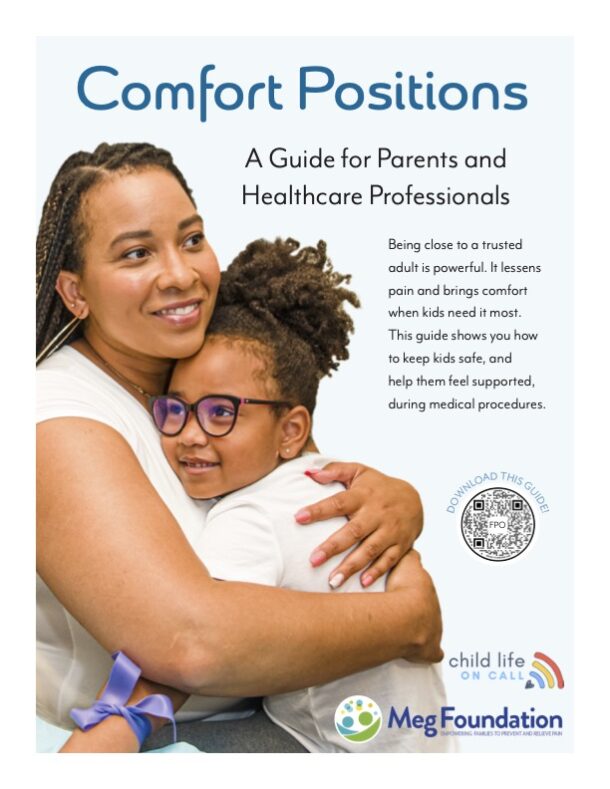April is Child Abuse Prevention Awareness Month. We have reposted this episode to bring awareness and give you tangible tools to speak with your kids about child abuse. Today’s guest expert is Jane Donovan, who is a child abuse prevention advocate. "And like we say in...
Episode 64 | Mijha’s Story – A daughter with Triplication of Genes on Chromosome 15q
Podcast Show Notes
EPISODE 64: MIJHA’S STORY – A DAUGHTER WITH TRIPLICATION OF GENES ON CHROMOSOME 15Q
Posted April 7, 2021 by Child Life on Call
Mijha’s Story
Mijha and her husband live in the Atlanta area with their three daughters: aged 9 years, 5 years, and 8 months at the time she spoke with Child Life on Call. When Mijha’s middle daughter (Violet) was born, she spent two nights in the NICU for jaundice. Mijha also spent 2 weeks with a cardiologist for an irregular heartbeat that was visible towards the end of her pregnancy.
Apart from these abnormalities, the family didn’t realize anything unusual was happening with Violet’s health. During the pregnancy, Mijha had even taken a prenatal test looking for four major abnormalities, all of which were not present in her daughter. Mijha and her husband had no reason to believe that there was something to be concerned about.
Mijha later learned that Violet’s Apgar score at birth had not been typical – something her husband did not mention to her until much later. The Apgar score is a way for healthcare professionals to quickly summarize the health of a newborn baby. Despite this, the family went home with Violet after her brief time in the NICU. Three months later, they headed to her well child doctor’s appointment. At the appointment, Violet was observed to be a bit “floppy” and the pediatrician sent her to a neurologist.
When speaking of this time, Mija said “I didn’t really recognize at first how out of it Violet was; she wasn’t really alert, she didn’t really engage, she slept a lot.” Part of the reason she didn’t realize this was unusual was her oldest daughter’s behavior as a newborn; she had been an extremely calm baby and didn’t cry a lot. After a few months, Mijha’s stepmother visited, and she warned Mijha that Violet was not behaving like a typically developing baby would. Mijha thinks some of the hormones associated with pregnancy and a new baby may have impacted her ability to clearly see that Violet was not behaving in a typical way.
After having her youngest daughter, Elizabeth, in July of 2020, Mijha realized how delayed Violet’s development had been. “[Elizabeth] is smiling at 5 weeks,” Mijha said. “Violet didn’t smile until 5 months.”
It was around the time of her stepmother’s visit (when Violet’s developmental challenges became evident) that Mijha learned the importance of advocating for herself and for her child. She realized this was especially important as a black woman in a healthcare system where doctors are only able to give patients a very short window of time.
“It’s important to us that doctors know we’re not here to be trifled with,” Mijha said. “We have our information ready and my husband and I wear clothes that signify to the doctors that we expect to be treated with respect. There’s that extra added layer that we sort of have to perform, but it’s all to make sure that our child gets the best care possible – so we just do it.”
Mijha took Violet to a second neurologist where she had genetic testing performed. The test came back with a triplication of genes on chromosome 15Q. The more common abnormality is to have a duplication on chromosome 15Q, so a triplication is highly unusual.
“What’s interesting about having a super rare anomaly is that people want to correct you all the time,” Mijha said. “If you tell them you’re not a doctor and you tell them your child has a triplication, they write down duplication.”
According to Mijha, a duplication or triplication can be passed down genetically through the mother or father – with more severe symptoms if coming from the mother. However, the duplication or triplication can also occur in the womb – which turned out to be the case for Violet.
Mijha mentioned that the symptoms that occur with this anomaly are so devastating that she was almost afraid to Google search for information about her daughter’s condition. The symptoms can include: severe developmental delays, autism, possibility that the child will never walk or speak, seizures, hypotonia (muscle weakness), and cognitive deficits or delays.
Violet has experienced seizures, hypotonia, severe developmental delays, and has been diagnosed with autism. She is able to walk, but she is nonverbal. “She’s almost 6,” Mijha said, “she’s not reading, she’s not talking.” For Mijha, these cognitive effects were the most difficult symptoms to learn about, as she comes from a background that highly values knowledge and academic achievement.
After learning of Violet’s diagnosis and that this chromosomal abnormality occurred in the womb, Mijha couldn’t help but think it was something she did that caused Violet’s condition.
“It was very hard to get the diagnosis because I felt completely out in the middle of the ocean. And feeling like I did it – she grew inside of me so there must be something that I did wrong,” Mijha said. “And although we’ve been to plenty of geneticists that say that’s not the case, I still think about the fact that I was really depressed when I was pregnant with her because my father had just passed. I’m positive that had something to do with it, but I can’t fix it now.”
To ensure she was doing everything she could to give Violet the best chance of thriving, Mijha decided to take all of the expert advice she received. She signed Violet up for therapy and she even moved her family to a new house to be in a school district that would better serve Violet’s needs.
Still, she struggled with the diagnosis. She was sad and depressed. Before she became a mother, Mijha thought the one thing she couldn’t handle was a child with special needs. “And of course that’s what I got,” Mijha said. “So I really had to figure out how to change my mind and that’s an ongoing process.”
Prior to the pandemic, Violet was in speech therapy two times a week, physical therapy two times a week, occupational therapy once a week, hippotherapy once a week (which is horseback riding therapy), and Lekotek (play therapy for children with disabilities). She also had many additional therapies at school. At first, Mijha didn’t feel like the therapies were making a difference or were worth it, but her husband could see the small ways that Violet was improving.
One therapy that Violet does not enjoy is speech therapy because it is so intensive. In speech therapy, she has to learn how to chew, how to swallow and how to drink from a straw.
The speech therapist told Mijha that there are 26 actions involved in chewing and swallowing. When she heard this, Mijha thought, “you have got to be kidding me.”
A therapy that Violet does enjoy is ABA therapy, which she did at home during the pandemic. Through ABA therapy and just being Violet’s mom, Mijha has seen Violet’s personality come out. “She doesn’t really like being made to work – that’s how I know she’s mine,” Mijha joked.
Before being a mom to a child with special needs, Mijha wasn’t aware of how much personality children with special needs can have. “I had such a monolithic view of people with special needs,” Mijha said. “I thought I wasn’t going to get to know her personality and we have – she’s stubborn and she thinks she’s funny.”
When asked what she would tell her former self who was just learning of Violet’s diagnosis, Mijha said, “I wish I could tell my former self that she is going to be okay. Even though Violet isn’t quite 6 years old, I know that she is surrounded by so much love and she engenders so much love from other people that she is going to be okay. This child has never spoken a word and we have friends of the family and teachers who love her so much.”
She added that this love people have for her is not out of sympathy because they feel bad for her. Mijha said that people find Violet funny and cute and have really come to love her personality and who she is as a person.
Another piece of advice Mijha would give herself is to put less pressure on herself as a mom, because she is doing everything she can. Someone once told her that she can just be Violet’s mom. She doesn’t have to be her therapist too, since there are plenty of people to take on that role. This was one of the best things anyone has said to her throughout this journey. “I felt like this woman had applied a balm to all of my injuries,” Mijha said.
In addition to being an amazing mom to Violet and her two sisters, Mijha started a business to help other kids know that they belong and their stories are important. This began when Mijha was looking for books depicting children of color in a western environment doing normal things kids in western cultures do, like playing ball and going to the park. Unfortunately, she couldn’t find any. All of the books she found with children of color were based in other countries in settings that were very different to the American context her children were growing up in.
“It’s great to learn about other countries and the cultures of other countries, but you need to know that you belong here – that you can bloom right here where you’re planted,” Mijha said. That’s where the idea for her company, Jambo books, came from. “Jambo” means “hello” in Swahili.
“I said gosh wouldn’t it be great if somebody just sent me fiction books that starred children of color in western looking circumstances?” Jambo books sends their subscribers two to three books per month, which include children of color in fictional stories doing things everything from slaying dragons to loving their grandparents and begging for pets.
She now has relationships with publishers who will make book recommendations and encounters authors who will ask if their books can be featured. Sometimes she looks online for new books and orders them to see if they will be a good fit for her subscribers.
She also tries to find books with children of color who have different abilities – like children with autism, in wheelchairs, or with different processing disorders.“I just think about Violet sometimes and I get really worried about the world,” Mijha said. “I think she’ll be fine, but how will the world react to her? I want to be able to send books that teach children that it’s okay to be different…it’s just a different way of being in the world.”
She also worries about her daughter’s safety when she hears stories like the teenage boy with autism who was shot by police. Because of the way Violet’s mind works due to her chromosome triplication, she would be unlikely to comply with instructions from a police officer. “If you tell Violet to stop and turn around, she’s not going to do it,” Mijha said. “It’s not because she has a weapon. It’s not because she’s trying to be stubborn. It’s just the way her mind works – but please don’t shoot her.”
During the pandemic, Violet’s Pre-K was online, which was difficult for children without disabilities. So for a child like Violet, learning through Zoom video calls was especially challenging. Mijha decided to take her out of Pre-K and sign her up for in-home ABA therapy instead, which worked out really well for Violet. With a third grader taking Zoom classes and a baby who constantly wants to be held needing her attention as well, Mijha certainly had her hands full throughout the pandemic.
While Mijha may not have chosen to be a mother to a child with special needs, Violet has taught her a lot and given her a new ability to truly accept people as they are. “Violet has brought me the gift of true acceptance,” Mijha said. “I think I thought I understood acceptance before, but I didn’t. I was always trying to tweak it – always trying to control it. Violet has taught me that there are no mistakes. That was a really hard lesson for me, but the way that people react to her and love her and look forward to seeing her…it’s just mind-blowing and I really love that about her.”
Mijha feels that she is in a pretty good place now with accepting Violet’s disability and accepting the life she has been given as a mom to a child with special needs… but it took her awhile to get to this place. “I was really really mad for a really long time,” Mijha said.
She felt that people tried to convince her that she needed to just accept her life and be grateful for the life she had, but she found that very frustrating. She wants other people in similar situations to know that they don’t have to act like they’re completely okay with their circumstances. They can feel their emotions.
“I think it’s alright to be disappointed. I think it’s alright to be angry,” Mijha said. “For me, it was one of those stages of grief – of letting go of the family I thought I was going to have to be able to finally embrace the family that I have.”
Mijha encourages people to embrace their feelings as a way to eventually make it to a point of acceptance, even if it takes a long time to get there.“It might take a really long time, but you’ll come through it,” Mijha said. “But just feel it – feel the anger, feel the disappointment and eventually it will release its hold on you.”
We are so thankful to Mijha for sharing her family’s story! Mijha is an amazing mom and her daughter Violet is one of a kind. We also appreciate all of the wonderful nuggets of wisdom Mijha has given us, as well as her honesty in recalling her daughter’s diagnosis and the years that followed.
To learn more or to sign up to receive books from Jambo Books, visit jambobooks.com.
Three Quotes
“I think it’s alright to be disappointed. I think it’s alright to be angry. For me, it was one of those stages of grief – of letting go of the family I thought I was going to have to be able to finally embrace the family that I have.”
“I had such a monolithic view of people with special needs. I thought I wasn’t going to get to know her personality and we have – she’s stubborn and she thinks she’s funny.”
“I want to be able to send books that teach children that it’s okay to be different…it’s just a different way of being in the world.”
Advice for Parents
Don’t put so much pressure on yourself. You are doing the best that you can.
You don’t need to be your child’s therapist. There are plenty of people who can provide therapy. You just need to be their mom/dad/caregiver. You can’t be all things to all people.
It’s okay to be mad or disappointed after your child’s diagnosis. It’s part of the grieving process of the life and family you thought you would have. By feeling your emotions and letting your emotions out, you can eventually move to a place of embracing what you have been given. But it’s okay if that doesn’t happen overnight. It often takes time – sometimes a lot of time.
There is so much we can learn from our children. Despite the challenges of having a child with special needs, there is so much to be learned from the resilience, acceptance, and joy many of these children have.
Check out this episode!
You Might Also Like…
215: Ruptured Appendix: Emergent Surgery, 6 Days in the Hospital & Struggles to Discharge
"I've learned so much in this whole process. It's like you have a depth inside of you that resurrects as an advocate and high alert, and it lives inside of you when you need it." -Aspen, Willa's Mom In this episode of Child Life On Call, host Katie Taylor and guest...
214: Sacrifice, Advocacy, Joy: Raising a Son with End Stage Kidney Disease – The Ransome Family’s Story
"Sometimes it's really therapeutic though to remember all that you have gone through because I feel like there are times when we look at each other and I'm like how did we get here?" Taylor Ransome We're grateful for our sponsor for this episode, Nestle Health...


